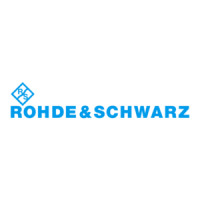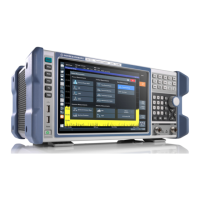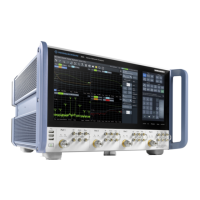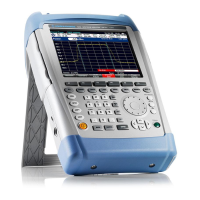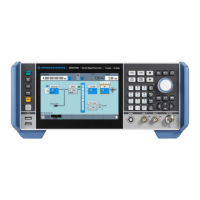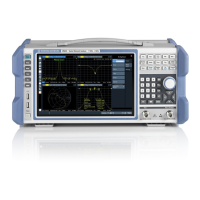Bluetooth Measurements (Option K8) R&S FSL
1300.2519.12 2.40 E-11
Table 2–5 Enhanced Data Rate Measurements
EDR Relative TX
Power
EDR Carrier
Frequency
Stability and
Modulation
Accuracy
EDR Differential
Phase Encoding
EDR In–band
Spurious
Emissions
Hop
off off off off
Trigger
– – – extern/
IF power
Synchronization
yes yes yes yes, needed for
gate adjustment
Packet Type
longest supported longest
supported
longest supported longest supported
Payload
PRBS 9 PRBS9 PRBS9 PRBS9
Test Mode
loop back loop back TX mode loop back
Operating Mode
IQ mode IQ mode IQ mode analyzer zero
span
RBW
3 MHz – – 100 kHz
VBW
3 MHz – – 300 kHz
Power
supported
minimum/
maximum
supported
minimum/
maximum
supported
minimum/
maximum
supported
minimum/
maximum
Sweep Time
one complete
packet
one complete
packet
one complete
packet
10*79*
gate length
Sweep Count
10 200 blocks 100 10
Trace Mode
ClrWr – – Maxh
Detector
Aver – – Aver
Frequency in
MHz
low /
middle /
high
low /
middle /
high
low /
middle /
high
each channel
Span
– – – 79 MHz
Test cond
norm / ext norm / ext norm / ext norm / ext
Results
ratio of DPSK and
GFSK power
carrier frequency
stability and
error vector
magnitude
number of failed
packets
channel power of
all channels
Functional Description – Block Diagram
The Adjacent Channel Power and EDR In–band Spurious Emissions measurements are performed in
the Spectrum Analyzer mode. For this test case the complete frequency band is scanned using a
sequence of zero span measurements.
All other test cases are based on a digital I/Q demodulator which determines the temporal
characteristics of power and frequency. The output data of the demodulator are the basis for calculation
of all relevant measurement results like modulation characteristics or output power. The demodulator
reaches a maximum in accuracy and temperature stability by sampling the IF signal and converting it
digitally down into the base band (I/Q area).
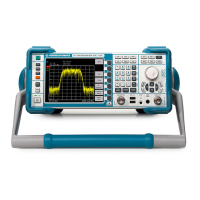
